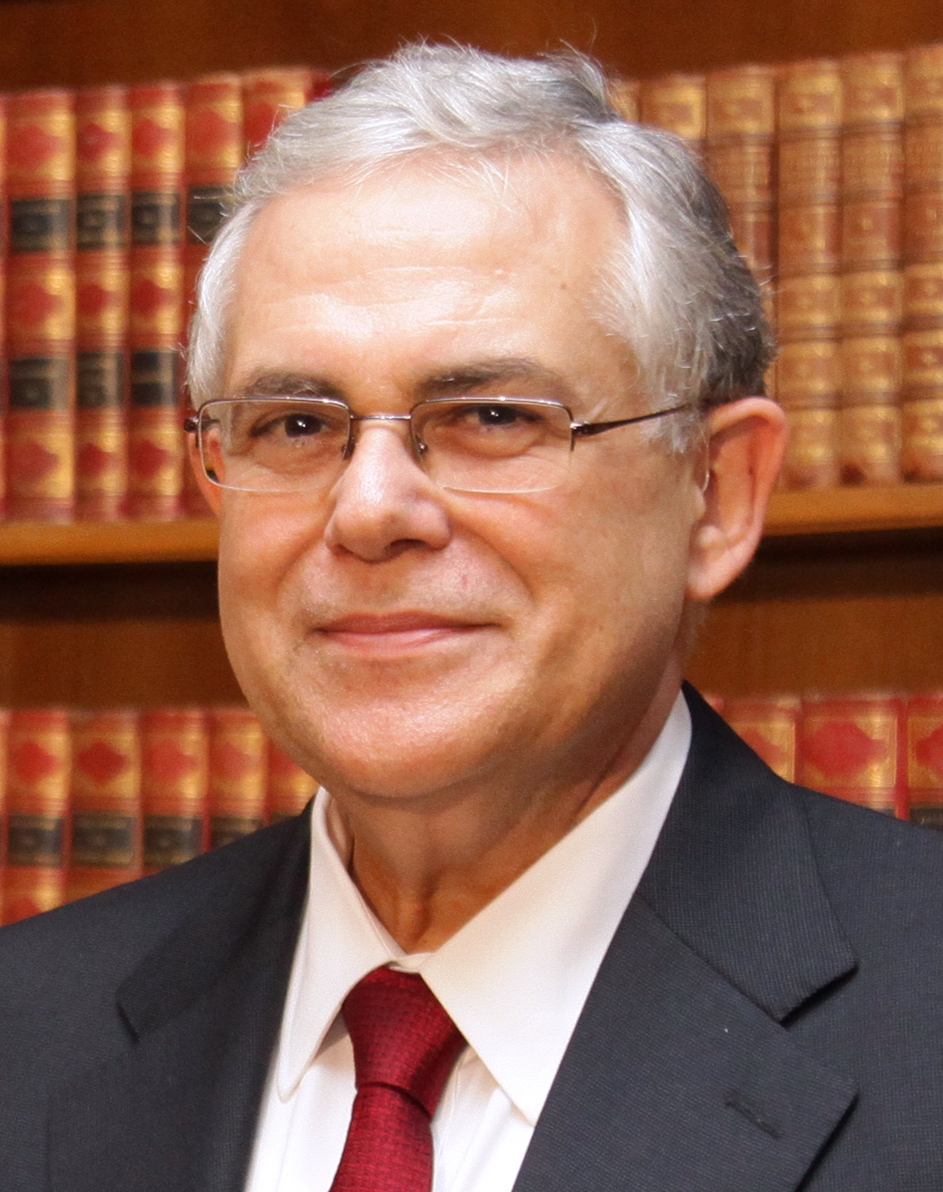Lucas Papademos
| Lucas Papademos Λουκάς Παπαδήμος |
|
|---|---|
 |
|
| Prime Minister of Greece | |
|
In office 11 November 2011 – 16 May 2012 |
|
| President | Karolos Papoulias |
| Deputy | Theodoros Pangalos |
| Preceded by | George Papandreou |
| Succeeded by | Panagiotis Pikrammenos |
| Vice President of European Central Bank | |
|
In office 31 May 2002 – 31 May 2010 |
|
| President |
Wim Duisenberg Jean-Claude Trichet |
| Preceded by | Christian Noyer |
| Succeeded by | Vítor Constâncio |
| Governor of the Bank of Greece | |
|
In office 26 October 1994 – 31 May 2002 |
|
| Deputy | Panagiotis Thomopoulos |
| Preceded by | Ioannis Boutos |
| Succeeded by | Nikolaos Garganas |
| Personal details | |
| Born |
11 October 1947 Athens, Greece |
| Political party | Independent |
| Spouse(s) | Shanna Ingram |
| Alma mater | Massachusetts Institute of Technology |
| Religion | Greek Orthodoxy |
Lucas Demetrios Papademos (Greek: Λουκάς Παπαδήμος; born 11 October 1947) is a Greek economist who was the Prime Minister of Greece from November 2011 to May 2012, leading a provisional government in the wake of the Greek debt crisis.
He was previously the Governor of the Bank of Greece from 1994 to 2002, before leaving to become Vice President of the European Central Bank from 2002 to 2010. He was a Visiting Professor of Public Policy at the Kennedy School of Government at Harvard University and is a Senior Fellow at the Center for Financial Studies at the University of Frankfurt.
Papademos was born in Athens to parents who came from the town of Desfina in Phocis. After graduating from Athens College in 1966, Papademos was accepted into the Massachusetts Institute of Technology, where he gained a bachelor's degree in physics in 1970, a master's degree in electrical engineering in 1972, and a doctorate in economics in 1978.
In 1975, he worked with Franco Modigliani on the NAIRU concept. He engaged in a career in academia, teaching economics at Columbia University from 1975 until 1984, before moving to the University of Athens in 1988.
...
Wikipedia
